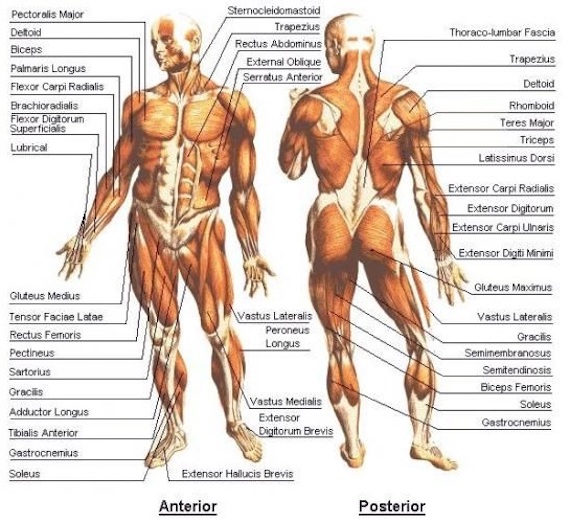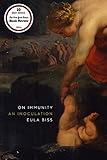
1.Standing at the DMV counter for a new license, I grit my teeth against a vivid mental picture of my mangled body being pulled from a car wreck. I am about to check “yes” for organ donor. As pen hits paper, I shudder at images of sharp tools flashing at the accident scene, removing my eyeballs and kidneys. I resist the urge to ask the clerk behind the counter if the medics will absolutely ensure I’m dead before removing my organs. My fear is mitigated by knowing that there is such great need for organs; I’ve recently learned this by teaching bioethics to nursing and premedical students. When the shiny plastic card is handed to me, I look at the tiny blue heart enclosing “Organ Donor” in red and feel a flush of satisfaction: I’ve done the right thing.

 Two recent books, Karen Russell’s Sleep Donation and Margaret Atwood’s The Heart Goes Last, probe our conflicted feelings about giving parts of ourselves to others. Russell’s novella uses the delightfully sly conceit of an insomnia epidemic to dramatize the interpersonal dynamics of donation. Protagonist Trish Edgewater works for Slumber Corps, a nonprofit funded and run by former CEOs Rudy and Jim Storch; she secures sleep donations by telling recruits the heart-wrenching story of her sister who succumbed to fatal sleep deprivation. In Atwood’s novel, a corporation disguised as a collective is secretly euthanizing prisoners and selling their organs.
Two recent books, Karen Russell’s Sleep Donation and Margaret Atwood’s The Heart Goes Last, probe our conflicted feelings about giving parts of ourselves to others. Russell’s novella uses the delightfully sly conceit of an insomnia epidemic to dramatize the interpersonal dynamics of donation. Protagonist Trish Edgewater works for Slumber Corps, a nonprofit funded and run by former CEOs Rudy and Jim Storch; she secures sleep donations by telling recruits the heart-wrenching story of her sister who succumbed to fatal sleep deprivation. In Atwood’s novel, a corporation disguised as a collective is secretly euthanizing prisoners and selling their organs.
These two sci-fi tales pose pressing ethical questions that affect us now: What motivates donation? How does donation work in a for-profit health care industry? What are our obligations to others and what are our rights to our organs and tissues? Karen Russell and I discussed these questions over the phone on the day before the election; in the post-election reality, their urgency has intensified.
2.
 Anxiety over organ harvesting has a long and ghoulish life in our collective imagination. Historian Katharine Park, in Secrets of Woman, notes the persistent cultural narrative of early dissectionists in Renaissance Italy shunting corpses out of trapdoors in their laboratories when the authorities came around. Mary Shelley was thinking of both public autopsies on executed criminals and the vulture eating Prometheus’s liver when she described Victor Frankenstein assembling human cadaver parts into a new creature. A foreigner draining good English blood from Lucy Westenra — and transfusions from four men — sets off an international vampire hunt in Dracula. In our century, Kazuo Ishiguro in Never Let Me Go imagines an eerily plausible world in which people clone themselves for their own future transplant needs. Private organ and tissue banking is already a thriving industry; only the completion of human cloning technology seems to stand between Ishiguro’s medical dystopia and us.
Anxiety over organ harvesting has a long and ghoulish life in our collective imagination. Historian Katharine Park, in Secrets of Woman, notes the persistent cultural narrative of early dissectionists in Renaissance Italy shunting corpses out of trapdoors in their laboratories when the authorities came around. Mary Shelley was thinking of both public autopsies on executed criminals and the vulture eating Prometheus’s liver when she described Victor Frankenstein assembling human cadaver parts into a new creature. A foreigner draining good English blood from Lucy Westenra — and transfusions from four men — sets off an international vampire hunt in Dracula. In our century, Kazuo Ishiguro in Never Let Me Go imagines an eerily plausible world in which people clone themselves for their own future transplant needs. Private organ and tissue banking is already a thriving industry; only the completion of human cloning technology seems to stand between Ishiguro’s medical dystopia and us.


 Sleep Donation is Russell’s first foray into “straight science fiction.” As a young reader, she was influenced by Atwood’s The Handmaid’s Tale; John Wyndham’s The Day of the Triffids, a Cold War era thriller about bioengineered plants that revolt against humans; and Frank Herbert’s 1965 novel Dune. Of the last, she said, “It’s an amazing, prescient epic about ecological fragility, monopolistic guilds, and an interstellar community addicted to ‘spice’ the way we are dependent on fossil fuels. Dune showed me how an alternate universe can hold up a mirror to our own reality.” In her novella, the idea of dream donation “gets at the global transmission of ideas — that accelerated connectivity of the Internet age, and the increasingly porous boundaries of this new world,” Russell said.
Sleep Donation is Russell’s first foray into “straight science fiction.” As a young reader, she was influenced by Atwood’s The Handmaid’s Tale; John Wyndham’s The Day of the Triffids, a Cold War era thriller about bioengineered plants that revolt against humans; and Frank Herbert’s 1965 novel Dune. Of the last, she said, “It’s an amazing, prescient epic about ecological fragility, monopolistic guilds, and an interstellar community addicted to ‘spice’ the way we are dependent on fossil fuels. Dune showed me how an alternate universe can hold up a mirror to our own reality.” In her novella, the idea of dream donation “gets at the global transmission of ideas — that accelerated connectivity of the Internet age, and the increasingly porous boundaries of this new world,” Russell said.
3.
While drafting Sleep Donation, Russell researched organ and blood donation and read up on the history of the AIDS epidemic. The novella captures the turbulence of a new disease outbreak. Scientists race to find the cause and develop a cure. Meanwhile, people seek their own solutions. Some “file for dream bankruptcy” and wait to be approved for a sleep donation; others resort to medical tourism — seeking treatment abroad; and a fringe of Night Worlds spring up complete with nostrum sellers and social spots catering to those who are awake all night. In her recruitment, Trish has stumbled across a particularly valuable sleep donor, Baby A. Her pure sleep makes her a universal donor. Trish forms a bond with her mother, Mrs. Harkonnen, who volunteers Baby A to give the maximum amount of sleep to the Corps. The baby’s father, however, resists the unrestricted donation.
The conflict between Mrs. and Mr. Harkonnen raises questions about motives for donation. Like blood donation, sleep donation does not seem to harm the donor; blood and sleep are renewable resources. “What has always felt so beautiful to me about blood donation is that it’s so literal and simple, a very visceral way to give and to receive. You get to participate in the circulatory system of a human community, a communal body,” Russell said. But more murky is the question of manipulating goodwill and consent to secure bodily gifts.
I’ve been able to avoid consenting to post-mortem organ harvesting for most of my adult life because the U.S. follows an opt-in system; those wishing to donate organs after death must give explicit permission via a living will, driver’s license, or donor registry under the Uniform Anatomical Gift Act — a piece of legislation that sounds like it could have been invented by Russell or Atwood. Other countries like Austria have an opt-out system, which presumes consent and requires explicit refusal to donate; these countries have about a 90 percent donation rate. In an opt-in system, recruiting donors is paramount, as Sleep Donation dramatizes.
 Mrs. Harkonnen insists on donating the maximum amount of sleep from her baby, but her husband’s objections make us consider the limits of our obligations to others. In her meditative essays in On Immunity, Eula Biss recounts her experience of blood loss during labor. She has Type O negative blood, making her a universal donor. Like Baby A, the rarity of her “anatomical gift” exponentially increases its value because it can help anyone, regardless of the recipient’s blood type. At the same time, Biss can only receive Type O negative transfusions. Her understanding, exquisitely woven throughout the essays in this volume, that we are all somatically interdependent — and interdependently vulnerable — motivates her to donate blood. She has benefitted, and so has learned with visceral immediacy what her body has needed to survive from another human body. Her motive, at least in part, is reciprocation.
Mrs. Harkonnen insists on donating the maximum amount of sleep from her baby, but her husband’s objections make us consider the limits of our obligations to others. In her meditative essays in On Immunity, Eula Biss recounts her experience of blood loss during labor. She has Type O negative blood, making her a universal donor. Like Baby A, the rarity of her “anatomical gift” exponentially increases its value because it can help anyone, regardless of the recipient’s blood type. At the same time, Biss can only receive Type O negative transfusions. Her understanding, exquisitely woven throughout the essays in this volume, that we are all somatically interdependent — and interdependently vulnerable — motivates her to donate blood. She has benefitted, and so has learned with visceral immediacy what her body has needed to survive from another human body. Her motive, at least in part, is reciprocation.
Biss’s intention seems to be enlightened volunteerism. Sleep Donation, on the other hand, highlights the ethical problem of emotional manipulation for a “good cause.” Trish uses emotional inducements to form relationships with donors by performing the maudlin tale of her sister’s fatal insomnia. She grieves afresh with every pitch — her anguish is genuine, and the Storches exploit her as their most valuable recruiter. Corporate motives of maximizing gain lurk ominously in this gift economy.
4.
The Storches’ Slumber Corps and Atwood’s Orwellian corporation, Consilience, play to our wariness of big business. Of Sleep Donation, Russell said, “I wanted to explore this tension that I think many people feel today between the desire towards openness and generosity, and a mistrust of institutions and corporations, a fear that you will get sapped dry by the for-profit world.” The instincts that Russell and Atwood tap into may be justified in the real-world case of the human tissue industry. Tissues are more easily harvested, stored, and transplanted than whole organs, and unless a donor specifies otherwise, consent to organ donation also permits tissue harvesting.
It is illegal for citizens to buy or sell organs and tissues. The law prohibiting organ and tissue sales by citizens is intended to avoid incentivizing body part sales (other than blood, sperm, and eggs, all legally sold by individuals), which could affect people disproportionately according to income. It could also further reduce donation of biomaterials in our inefficient opt-in system, experts postulate, if people will hold out for the highest bid and/or always expect remuneration. These intentions seem ethical, given the huge economic and health disparities in the U.S.
What donors often don’t know, however, is that the tissue industry is explicitly and legally for-profit — a fact that surprised even Russell in our recent conversation. The industry generates more than $1 billion annually. Corporations such as biotech companies routinely buy organs, tissues, cells, and medical record information from medical centers and government banks in order to develop new treatments for profit. Organ donors are not the only contributors to tissue harvests. If you’ve ever wondered what happens to your blood or tissues removed for regular care or testing, or where your newborn’s umbilical cord went, they all get banked for research and potential sale. At a recent doctor’s appointment, I signed a Notice of Privacy Practices (4 pages of miniscule font), which effectively secures my consent for my tissues and fluids to be banked and used at the facility’s discretion without notifying or compensating me. Every doctor’s office has a similar waiver for patients to sign before being seen, but most patients are unaware of what they are consenting to. We are all unwitting donors.
Perhaps because the reality of profiteering from human parts is already here, in The Heart Goes Last, Atwood bumps the ethics of human body part sales into darker territory. Her corporation, Consilience, bypasses the complicated dance of donation and instead kidnaps people from outside the town, euthanizes them, and sells their organs to a nursing home franchise. Most chillingly, the citizens perform the euthanasia without question because they are hostages to the middle-class comforts provided by Consilience against the lawlessness and poverty that had set in after a realistically-limned economic collapse. Atwood is having a dark laugh at our dependence on capitalist luxuries when Charmaine dutifully carries out what she thinks is the execution of her own husband without knowing that all of her victim’s organs are going to be sold.
5.
I’ve done the right thing, I tell myself to quiet down the gory, TV medical drama-informed mental image of medics harvesting my organs beside my crumpled car. Both the fictional Mrs. Harkonnen and the real Eula Biss offer antidotes to corporate profiteering. They are persuaded to donate for personal reasons — desires to respond to human needs not quantifiable in dollar amounts, to return a life-saving gift. My own decision to donate was based on seeing how many young adults just learning to become healthcare providers had registered themselves as donors. In class, even before we tackled the details of opt-in versus opt-out systems and ethical questions of informed consent, the nursing students had very practical understandings of the egregious organ shortage in the U.S. They didn’t share my fierce attachment to my somatic wholeness after death. (There are prohibitions in some cultures to opening the body before and after death; cultural variation in rules about bodily wholeness must be respected in any donation system). Some of my students explained their reasoning for being such willing donors: if I’m dead, I don’t need my parts, but they could save other lives. Listening to others showed me a new way to think about my dead body as a gift.
We are exposed to new perspectives through live encounters, but imaginary ones may hold even more potential for stimulating ethical deliberation. Russell agrees: “I think fiction is a realm where people can play out different scenarios, engage with these questions in a way where a certain kind of stakes are reduced (‘it’s just fiction’) so it becomes safe to really take a look at the unexamined assumptions that underlie our values and decisions.”
There are individual stakes, and then there are corporate stakes. Russell and Atwood both avenge the sinister business of bioprofiteering in their sci-fi worlds. The Storches sell some of Baby A’s pure samples to Japanese researchers and make a huge profit. Atwood’s corporate creeps are planning to sell infant blood and scale up their sale of prisoner organs to the rich, preparing an empire that will easily flourish in the lawless post-crash climate. And in both novels, the plots are foiled by female whistle-blowers. In Atwood’s dystopia, corporate vampirism is stopped — but only for one corporation. The novel leaves open the possibility that it could happen with other companies because the conditions are still there.
The ending of Sleep Donation is ambiguous. Russell said, “My original desire was simply to tell a story, the story of this particular character, Trish Edgewater, who is confronted with a terrible dilemma, and the questions arose as I drafted forward. [For the ending,] I wanted to leave open both possibilities, that Trish brings down the Storches, and that Trish ends up getting scapegoated. ‘Rewarding’ that move with a happy ending (or a happier one than Trish going to prison), or ‘punishing’ it by showing that Trish loses everything [including her friendship with Mrs. Harkonnen] — either of those moves would have felt somehow reductive to me, as if I were only writing this to show people the ‘right’ thing to do, making it a blunt moral fable, instead of a world to explore those questions about giving and receiving that haunt me still (and that I hope will haunt the reader).”
Despite the ambiguity of Russell’s ending, both novels’ revolutionary endings give us hope; they offer an antidote to what Russell described in an email the day after the election as the “corrosive cynicism that causes people to feel justified in ‘opting out’ of caring, trying. What a shame it is,” she added, “when our best impulses, the deep and genuine desire to give to one another, cannot find an outlet that we trust.”
Storytelling is perhaps our best inoculation against a donation dystopia of selfishness and unwitting complicity in a market of human parts; Russell emphasized that although she did research, she “wanted to be careful that the parallel between sleep donation and organ donation did not feel too one-to-one because sleep donation also felt analogous to storytelling generally. When you read or receive a story, you embody that author’s dream. Stories and novels have always given me a perch in an alternate world that lets me see something that was invisible to me when I was zipped into my own tight-fitting skin, pursuing my own interests.” Sleep Donation and The Heart Goes Last let us see ethical questions taking shape around bodily ownership and gifting, questions with enormous stakes that are often invisible in everyday cultural narratives about health and healthcare.
Image Credit: Wikimedia Commons.






